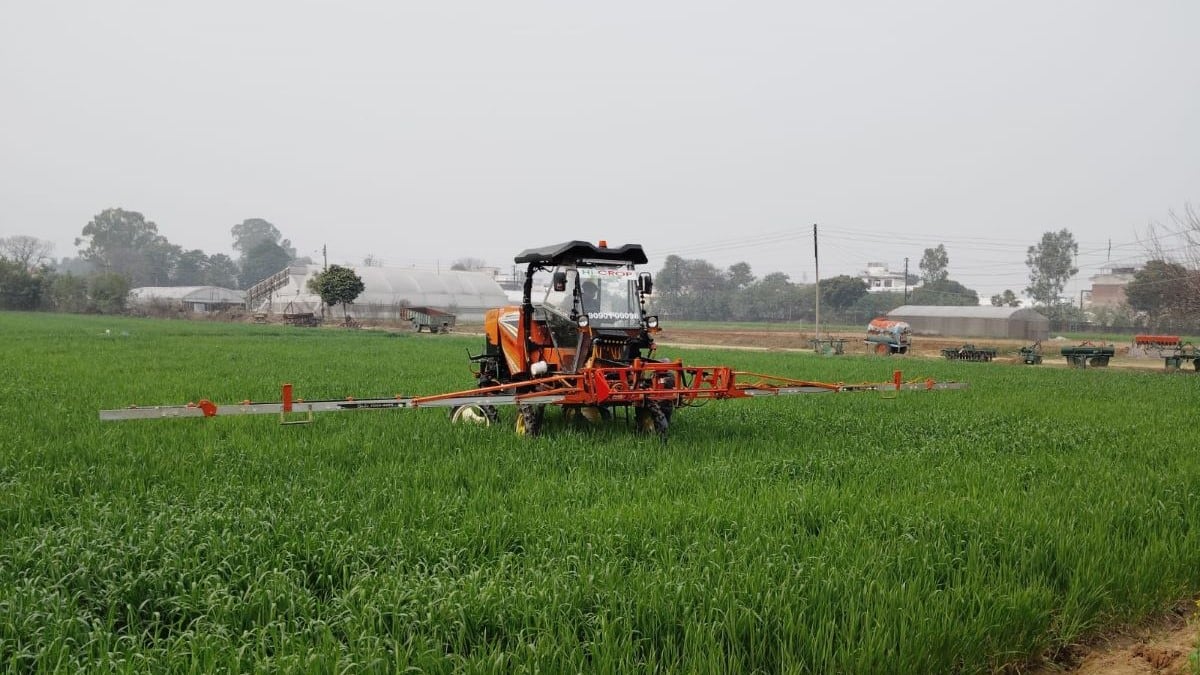PAU launches ‘smart agriculture ecosystem’ with PG diploma in mechatronics, MTech in AI and data science
Team Careers360 | May 3, 2025 | 02:47 PM IST | 2 mins read
Punjab finance minister inaugurates new agro-processing, biotech facilities; PAU collaborating with IITs, BITS Pilani for curriculum development

New Delhi: Punjab finance minister Sardar Harpal Singh Cheema on Monday inaugurated new agro-processing and biotechnology facilities at the Punjab Agricultural University (PAU). The varsity will also launch a postgraduate (PG) diploma in mechatronics and MTech in artificial intelligence (AI) and Data Science in Agriculture at its newly set up School of Digital Innovations for Smart Agriculture (S-DISA).
PAU is also planning to install a High-Performance Computing (HPC) to handle large datasets.
The new courses and centres are part of PAU’s efforts to create a ‘smart agriculture ecosystem’, which emphasises using data, artificial intelligence, high-performance computing, robotics, omics sciences, and geospatial technologies to boost farm productivity and profitability. To this end, the institute has also been collaborating with the Indian Institutes of Technology (IITs), BITS Pilani and even international universities for curriculum development.
In a statement, the university said that HPC will prove useful in utilising the data generated through AI, sensors, genomics and drones. “This will support real-time processing of vast datasets, enable predictive modeling for crop yield and disease outbreaks, and power next-generation decision-making in agriculture. It will also drive integrated analysis across phenotypic, genotypic, and environmental data layers, enabling ultra-precise and sustainable interventions,” reads the statement.
PAU: S-DISA, new tech tools
PAU’s S-DISA has been built with Rs 5 crore in funding, half of which was granted by the Punjab government. The varsity informed that it’s looking to use a number of new tech tools, including AI, drones, internet of things (IoT) sensors, robotics, spectroscopy and geographic information system (GIS) in farming to enable real-time crop monitoring, early stress detection, precision fertigation, and site-specific pest and weed management.
“Digital agriculture at PAU goes beyond gadgets; it’s about actionable intelligence. Through AI models, spectroscopy, and satellite imagery, farmers will gain the ability to forecast yields, fine-tune planting schedules, diagnose soil health, map nutrient deficiencies, and respond proactively to climate variability,” said the university.
PAU also seeks to fuse molecular sciences, including genomics, transcriptomics, metabolomics, and phenomics with AI to decode plant responses to stress and unlock genetic resilience. The insights generated through this method will help accelerate the breeding of climate-smart, high-yielding varieties, offering solutions to problems like stagnating incomes, overuse of chemicals, and pest outbreaks, the varsity informed.
Also read From farms to plates: MBA agribusiness graduates are in demand and jobs will grow
The institute has already established a Remote Pilot Training Organization (RPTO) under Rashtriya Krishi Vikas Yojana (RKVY), a centrally sponsored scheme, to train rural youth in unmanned aerial vehicle (UAV) operations. Since 2012, PAU has been running a master’s programme in Remote Sensing and GIS to teach spatial analytics for agriculture. “PAU’s recommended SOPs [standard operating procedures] for drone-based spraying are now in use, and the centre is leveraging UAV-mounted multispectral imaging to detect disease and pest outbreaks,” reads the university’s press release.
On the genetics front, PAU had last year set up the AccelBreed Speed Breeding Centre, high-throughput genotyping labs, and one of the country’s largest collections of wild germplasm with 1,500 wild wheat and 1,200 wild rice accessions.
Follow us for the latest education news on colleges and universities, admission, courses, exams, research, education policies, study abroad and more..
To get in touch, write to us at news@careers360.com.